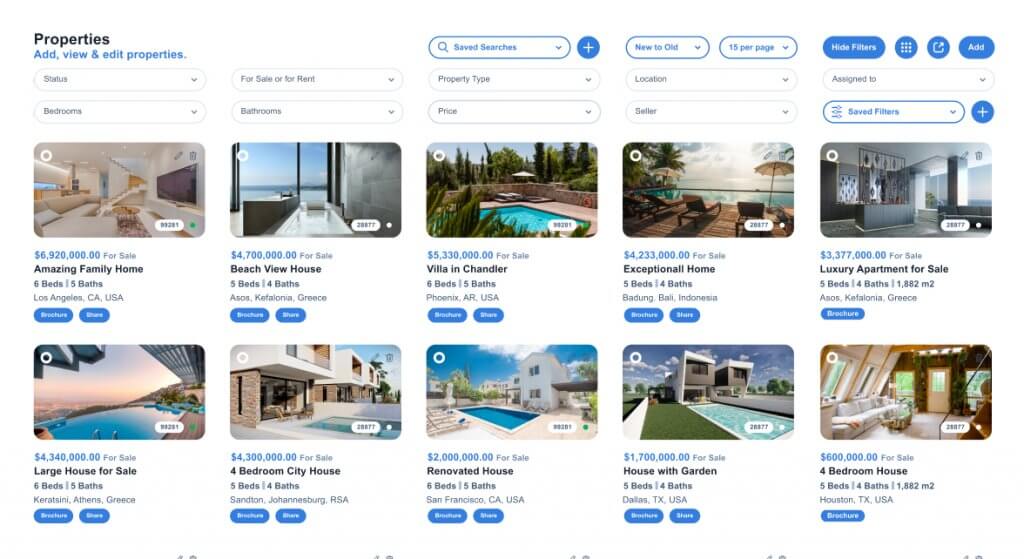Choosing whether to rent or buy a home has always been a complex decision, and the current housing market’s ever-changing dynamics add further complexity. With factors like surging mortgage rates, record rents and home prices, economic uncertainties, and lifestyle considerations, prospective homeowners face significant challenges. In this blog, we’ll explore the pros and cons of renting and buying a home in the USA, taking into account the latest statistics and a case study to help you make an informed decision tailored to your individual circumstances.
Table of contents
- Renting vs. Buying: By the numbers
- Case study: John and Sarah’s real estate journey
- Cost factors
- Building wealth
- Responsibility for repairs and maintenance
- Flexibility to make changes
- Conclusion
Renting vs. Buying: By the numbers
When examining the numbers, renting often appears to be the more financially feasible option. Based on asking rents and monthly mortgage payments in the top 50 largest metro areas in the U.S., a typical renter pays approximately 40% less per month than a first-time homeowner, as reported by Realtor.com. This statistic reflects the current state of the housing market, where renting is more cost-effective than buying in many markets.
However, individual circumstances play a vital role in this decision-making process. As we explore a generic case study of John and Sarah, it becomes evident that personalized financial goals and long-term aspirations can sway the scales in favor of buying a home.
Case study: John and Sarah’s real estate journey
John and Sarah are a fictional millennial couple considering their options in the ever-changing housing market. John is a software engineer, and Sarah is a marketing manager. They have been renting an apartment for several years, appreciating the flexibility it offers. However, they now seek a stable living situation and wish to establish roots.
After analyzing their finances, John and Sarah discover that their monthly mortgage payment for a starter home would be comparable to their current rent. They also realize that with mortgage rates relatively low, now may be an opportune time to invest in a property.
Cost factors
You’re not only responsible for your monthly mortgage payment when you’re a homeowner. You have to pay for repairs, maintenance, taxes, homeowner’s insurance, upgrades, and possibly HOA fees. These additional costs can easily make owning a home more expensive than renting, and not all home-related costs build equity. Renters are generally responsible for only rent and utilities. The property owner is responsible for everything else.
The upfront costs of renting and buying are dramatically different. You may have to pay an application fee and security deposit to move in as a renter. Buying a home means a much more significant down payment, origination fees, closing costs, taxes, and other expenses.
Building wealth
You’ll build equity in your home as you pay down your mortgage balance. Equity also increases as your home value goes up due to your local real estate market. Home equity adds to your net worth and can serve as collateral for a loan or line of credit if you need to borrow money in the future.
Gaining equity through appreciation isn’t guaranteed. Home values can decline, and you may end up owing more than your home is worth in some cases.
Homeownership also offers potential tax breaks for homeowners who itemize their deductions. Deducting the mortgage interest paid can help reduce income tax bills.
Wealth building isn’t impossible for renters, but it requires a different approach. Consistently investing the difference between renting and buying costs can increase net worth.
Responsibility for repairs and maintenance
One of the significant aspects of homeownership is the responsibility for repairs and maintenance. When you own a home, you are fully accountable for ensuring its upkeep and addressing any necessary repairs promptly. This responsibility encompasses a range of tasks, from minor fixes to major renovations.
As a homeowner, you have the choice of handling maintenance and repairs yourself or hiring professionals to do the job. Taking a do-it-yourself approach can save money, but it requires the necessary skills, time, and effort. On the other hand, hiring professionals provides expertise and ensures the work is done efficiently, but it comes with added costs.
Regular maintenance is essential to preserve the value and condition of your property. Tasks like regular HVAC system servicing, plumbing checks, roof inspections, and landscaping upkeep are part of your homeowner duties. Ignoring maintenance needs can lead to more significant issues over time and potentially costly repairs down the road.
Unlike renters, homeowners don’t have the luxury of relying on landlords to handle maintenance and repairs. The responsibility falls squarely on their shoulders, emphasizing the need for financial preparedness and commitment to maintain the property’s overall condition.
Flexibility to make changes
One of the benefits of homeownership is the creative freedom it offers over your living space. Homeowners have the opportunity to personalize their homes to suit their unique tastes and preferences fully. From cosmetic changes like painting walls and changing flooring to more significant remodeling projects, homeowners have the autonomy to shape their living environment to their liking.
Painting walls in vibrant colors, adding decorative elements, or redesigning spaces to improve functionality are just some of the ways homeowners can express their individuality. This ability to make changes without seeking approval or consent from a landlord empowers homeowners to create a living space that truly feels like their own.
Homeownership also provides the flexibility to invest in long-term upgrades and renovations. For example, you can undertake a kitchen remodel, add an additional room, or create a home office to better cater to your lifestyle needs. These changes not only enhance your living experience but can also potentially increase the value of your property over time.
In contrast, renters often face limitations in making changes to their living space. Rental agreements typically restrict significant alterations, and any cosmetic changes usually require approval from the landlord. This lack of creative freedom is one of the trade-offs for the flexibility to move at the end of a lease term or with appropriate notice.
In summary, homeownership provides the freedom and responsibility to personalize and maintain your property according to your vision and preferences. Renting, while offering flexibility in terms of relocation, comes with the trade-off of limited control over the living space’s design and modifications.
Conclusion
Choosing whether to rent or buy a home requires careful consideration of financial implications and lifestyle factors. While renting offers lower upfront costs and greater flexibility, buying a home provides the opportunity for wealth accumulation and personalization. Ultimately, the decision to rent or buy depends on individual circumstances, market conditions, and long-term goals. Regularly reassessing your situation and understanding market trends will help you make the best choice for your real estate journey in the ever-changing USA housing market.




